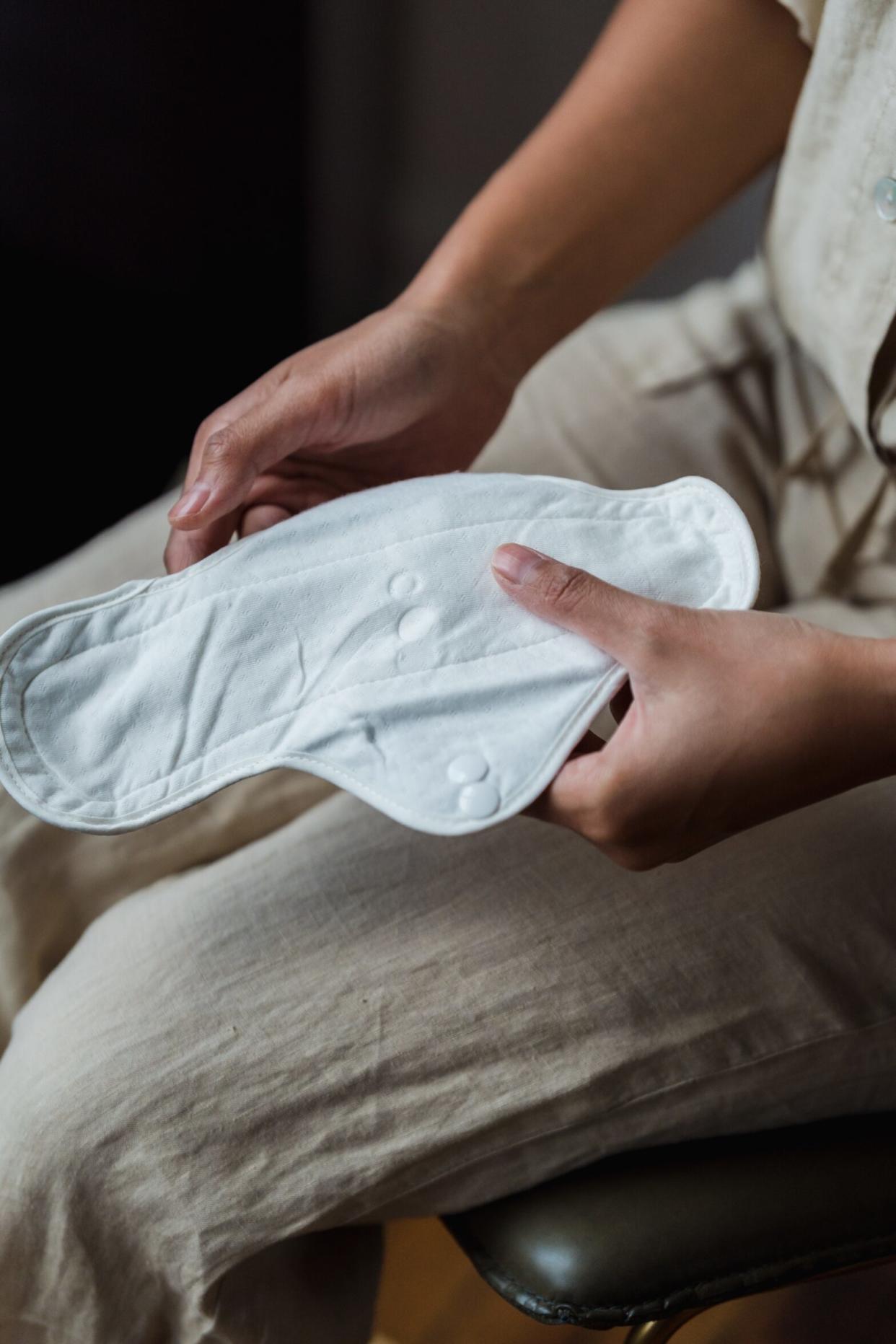I Have Period Symptoms, But No Period, What’s Going On?

Your breasts are bigger and slightly sensitive. One minute you were happy, and the next, there are tears streaming down your face. If you’re a person with ovaries, these symptoms are all too familiar. Your period is on the way. But, what if it’s not? What if you have period symptoms but no period? What does that mean, and when is it an actual problem?
OBGYN Taniqua Miller spoke with 21Ninety about having period symptoms, but no period. She explained that there are numerous reasons why you may have period symptoms but no period, the health risks it may cause and what you can do about it.

Anovulation
To get the full picture, Miller gave a refresher course in seventh grade sex ed.
“The menstrual cycle has three components,” she said. “The first component is the ovary building up to release an egg. This happens every 21 to 35 days. It’s egg development. The second part is ovulation, the release of the egg, mediated by lots of communication between the brain and the ovaries. The third part of that cycle is what we call the luteal phase, and that’s where the uterus, the ovaries, the body is preparing to receive a fertilized egg. If there is no fertilization, the hormone levels will drop, and then, at the very tail end, is the breakdown of the uterine lining which is what your period is, the menstrual bleeding that you experience.”
In anovulation, that second part doesn’t happen. It’s a menstrual cycle where an egg is not released.
PCOS
There could be a number of reasons why anovulation occurs. In her years of practicing medicine, Miller said the most common reason is polycystic ovarian syndrome, or PCOS. While it affects the reproductive system, the root cause is insulin insensitivity or resistance.
“[With PCOS] the signaling that’s responsible for having ovulation occur does not happen,” Miller said. “The eggs are lying in wait. People with PCOS have just as many eggs as everyone else, but they don’t get the signaling telling them to ovulate. Because of that, they can go weeks [or] months with no menstrual bleeding. It is really ovulation and the absence of pregnancy that triggers menstrual bleeding.”
People with PCOS can experience no bleeding at all or irregular bleeding; however, if you have anovulation, as a result of PCOS, there could be potential health risks.
“We worry about the lining overbuilding itself to the point where there are abnormalities,” Miller said. “Those patients are at increased risk for endometrial hyperplasia. They’re also at increased risk for endometrial cancer.”
What Else Can Cause Anovulation?
There are a host of other conditions and circumstances that can lead to anovulation. Some of these conditions are significant stress on the body, excessive exercise, having less than a third percentage of body fat, a dramatic decline in caloric intake, thyroid disease, prolactinemia and perimenopause.
“Black patients tend to experience perimenopause sooner and for a longer period of time,” Miller said. “There is increased intensity of their symptoms.”
Is Missing Periods Really All That Bad?
Periods can be inconvenient, and you might feel like you’ve been blessed not to have one. However, is missing periods okay? Dr. Miller says that it depends.
“First of all, take a pregnancy test,” she said. “If you are 40 and over, and it’s been a year with no bleeding, it’s menopause. If you are younger than that, you would need an evaluation because you might have thyroid disease or some chromosomal things that need to be evaluated.”
Miller said there are certain medications that induce anovulation, and if you don’t see a period while you’re taking those, it’s okay. The traditional birth control pill has estrogen and progesterone in it. It suppresses ovulation.
Miller said the only reason you get a period is because they put that week of sugar pills or iron pills at the end. However, if you were to take the actual pills consistently, you would not get a period.
Should You See a Doctor?
If you notice you’ve missed a period, Miller says there’s no need to rush to the doctor immediately. First, take a pregnancy test. However, if you go several months with no period and you’re under the age of 40, you should seek a professional opinion.
Can You Do Anything to Bring your Period Back?
If your period has been gone for a minute and you want to regulate it, there may be some things you can do. Your options depend on the cause for the missed period.
“For perimenopausal patients, anovulation is a function of the ovaries not having enough egg volume to keep up the normal cadence of a menstrual cycle,” Miller says. “If you want regularity or you want to suppress the bleeding, the only way to do that would be through medication.”
Miller said that if you are underweight, bring back healthy macronutrients and increase body fat. If you are over exercising, temper down your workouts and usually within a couple of months, the cycle will return. If you have PCOS with evidence of glucose intolerance, there are medications that help sensitize the body to insulin.
“For people with PCOS, if they are overweight or obese [and have] a loss of 5 [to] 10 percent of body weight[that] can trigger the cycles to return,” Miller said. “We know if we have a lot of belly fat, that further compounds insulin intolerance. If you lose 10 percent of your body weight, you’re likely losing the fat from around your internal organs. That will make you less insulin resistant.”
The post I Have Period Symptoms, But No Period, What’s Going On? appeared first on 21Ninety.

